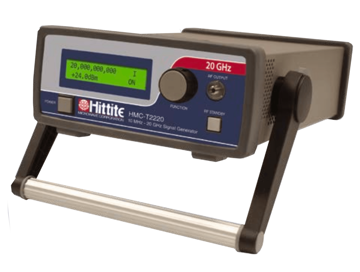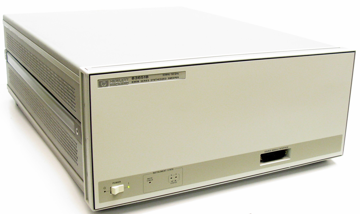Signal Generators
Signal generators generate electronic signals that can be modified by waveform, impedance, frequency, modulation, and output voltage. The signals produced by the signal generator are used as a stimulus for electronic measurements. Signal generators are most frequently used in troubleshooting, testing, designing, and repairing electronic equipment.
There are a variety of different types of signal generators to choose from depending on testing requirements, including RF signal generators, synthesized signal generators, vector signal generators, and more.
Some of the different types of applications for signal generators include oscillators, pulse generators, random noise generators, frequency synthesizers, and standard signal generators. Oscillators produce sine waves that can be used when measuring the return of acoustic systems, transducers, microphones, loudspeakers, and amplifiers. Pulse generators are used to generate pulsed signals at a particular frequency and span. Random noise generators are used for electronic and mechanical testing and produce wideband noise. Frequency synthesizers can produce an extremely accurate output of frequencies over a wide range. Standard signal generators produce sine waves over a wide range of output power and can test measure gain, bandwidth, and signal to noise ratio.
Avalon offers a variety of signal generators from top manufacturers (R&S, Keysight, and more) for rent or purchase to meet specific requirements set by IEC, MIL-STD, and CISPR.
Test With Confidence®.
Read More
Read Less
Rohde & Schwarz SMBV100B Vector Signal Generator
Teseq ITS 6006B Test System
- 1
- 2





































